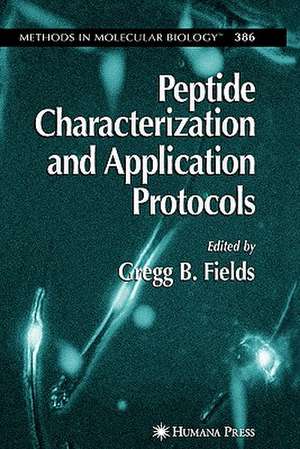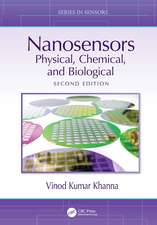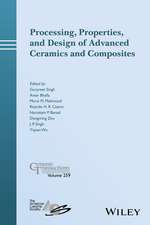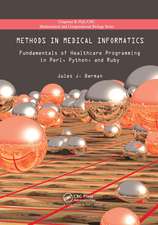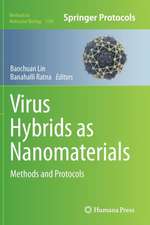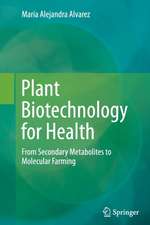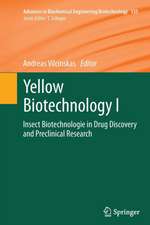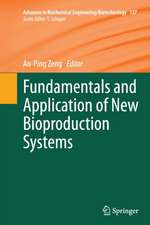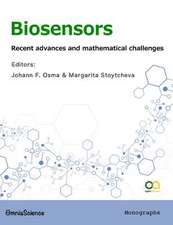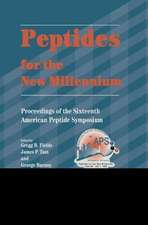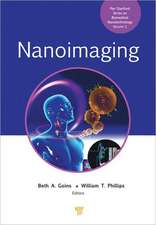Peptide Characterization and Application Protocols: Methods in Molecular Biology, cartea 386
Editat de Gregg B. Fieldsen Limba Engleză Paperback – 19 noi 2010
| Toate formatele și edițiile | Preț | Express |
|---|---|---|
| Paperback (1) | 642.51 lei 6-8 săpt. | |
| Humana Press Inc. – 19 noi 2010 | 642.51 lei 6-8 săpt. | |
| Hardback (1) | 649.87 lei 6-8 săpt. | |
| Humana Press Inc. – 11 mai 2007 | 649.87 lei 6-8 săpt. |
Din seria Methods in Molecular Biology
- 9%
 Preț: 791.63 lei
Preț: 791.63 lei - 23%
 Preț: 598.58 lei
Preț: 598.58 lei - 20%
 Preț: 882.98 lei
Preț: 882.98 lei -
 Preț: 252.05 lei
Preț: 252.05 lei - 5%
 Preț: 802.70 lei
Preț: 802.70 lei - 5%
 Preț: 729.61 lei
Preț: 729.61 lei - 5%
 Preț: 731.43 lei
Preț: 731.43 lei - 5%
 Preț: 741.30 lei
Preț: 741.30 lei - 5%
 Preț: 747.16 lei
Preț: 747.16 lei - 15%
 Preț: 663.45 lei
Preț: 663.45 lei - 18%
 Preț: 1025.34 lei
Preț: 1025.34 lei - 5%
 Preț: 734.57 lei
Preț: 734.57 lei - 18%
 Preț: 914.20 lei
Preț: 914.20 lei - 15%
 Preț: 664.61 lei
Preț: 664.61 lei - 15%
 Preț: 654.12 lei
Preț: 654.12 lei - 18%
 Preț: 1414.74 lei
Preț: 1414.74 lei - 5%
 Preț: 742.60 lei
Preț: 742.60 lei - 20%
 Preț: 821.65 lei
Preț: 821.65 lei - 18%
 Preț: 972.30 lei
Preț: 972.30 lei - 15%
 Preț: 660.49 lei
Preț: 660.49 lei - 5%
 Preț: 738.41 lei
Preț: 738.41 lei - 18%
 Preț: 984.92 lei
Preț: 984.92 lei - 5%
 Preț: 733.29 lei
Preț: 733.29 lei -
 Preț: 392.60 lei
Preț: 392.60 lei - 5%
 Preț: 746.26 lei
Preț: 746.26 lei - 18%
 Preț: 962.66 lei
Preț: 962.66 lei - 23%
 Preț: 860.22 lei
Preț: 860.22 lei - 15%
 Preț: 652.64 lei
Preț: 652.64 lei - 5%
 Preț: 1055.50 lei
Preț: 1055.50 lei - 23%
 Preț: 883.87 lei
Preț: 883.87 lei - 5%
 Preț: 1141.13 lei
Preț: 1141.13 lei - 19%
 Preț: 491.89 lei
Preț: 491.89 lei - 5%
 Preț: 1038.86 lei
Preț: 1038.86 lei - 5%
 Preț: 524.16 lei
Preț: 524.16 lei - 18%
 Preț: 2122.34 lei
Preț: 2122.34 lei - 5%
 Preț: 1299.23 lei
Preț: 1299.23 lei - 5%
 Preț: 1339.12 lei
Preț: 1339.12 lei - 18%
 Preț: 1390.26 lei
Preț: 1390.26 lei - 18%
 Preț: 1395.63 lei
Preț: 1395.63 lei - 18%
 Preț: 1129.65 lei
Preț: 1129.65 lei - 18%
 Preț: 1408.26 lei
Preț: 1408.26 lei - 18%
 Preț: 1124.92 lei
Preț: 1124.92 lei - 18%
 Preț: 966.27 lei
Preț: 966.27 lei - 5%
 Preț: 1299.99 lei
Preț: 1299.99 lei - 5%
 Preț: 1108.51 lei
Preț: 1108.51 lei - 5%
 Preț: 983.76 lei
Preț: 983.76 lei - 5%
 Preț: 728.16 lei
Preț: 728.16 lei - 18%
 Preț: 1118.62 lei
Preț: 1118.62 lei - 18%
 Preț: 955.25 lei
Preț: 955.25 lei - 5%
 Preț: 1035.62 lei
Preț: 1035.62 lei
Preț: 642.51 lei
Preț vechi: 755.88 lei
-15% Nou
Puncte Express: 964
Preț estimativ în valută:
122.96€ • 133.52$ • 103.29£
122.96€ • 133.52$ • 103.29£
Carte tipărită la comandă
Livrare economică 23 aprilie-07 mai
Preluare comenzi: 021 569.72.76
Specificații
ISBN-13: 9781617376375
ISBN-10: 161737637X
Pagini: 342
Ilustrații: XII, 342 p. 102 illus., 4 illus. in color.
Dimensiuni: 152 x 229 x 20 mm
Greutate: 0.48 kg
Ediția:Softcover reprint of hardcover 1st ed. 2007
Editura: Humana Press Inc.
Colecția Humana
Seria Methods in Molecular Biology
Locul publicării:Totowa, NJ, United States
ISBN-10: 161737637X
Pagini: 342
Ilustrații: XII, 342 p. 102 illus., 4 illus. in color.
Dimensiuni: 152 x 229 x 20 mm
Greutate: 0.48 kg
Ediția:Softcover reprint of hardcover 1st ed. 2007
Editura: Humana Press Inc.
Colecția Humana
Seria Methods in Molecular Biology
Locul publicării:Totowa, NJ, United States
Public țintă
ResearchCuprins
Characterization.- HPLC Analysis and Purification of Peptides.- Identification of Proteins Based on MS/MS Spectra and Location of Posttranslational Modifications.- Determination of Phosphorylated and O-Glycosylated Sites by Chemical Targeting (CTID) at Ambient Temperature.- Synthesis, Biosynthesis, and Characterization of Transmembrane Domains of a G Protein—Coupled Receptor.- Applications.- Application of Topologically Constrained Mini-Proteins as Ligands, Substrates, and Inhibitors.- Proteolytic Profiling of the Extracellular Matrix Degradome.- ?-Amyloid Protein Aggregation.- Radiometal-Labeled Somatostatin Analogs for Applications in Cancer Imaging and Therapy.- Cell-Penetrating Proline-Rich Peptidomimetics.- Peptide-Mediated Targeting of Liposomes to Tumor Cells.- Peptide-Mediated Delivery of Nucleic Acids into Mammalian Cells.- Broth Microdilution Antibacterial Assay of Peptides.- Depsipeptide Synthesis.
Textul de pe ultima copertă
Peptide Characterization and Application Protocols is dedicated entirely to the characterization of peptides and their applications for the study of biochemical systems and the contributing authors are all leaders in the field of peptide research. Part I, Characterization, presents the most recent advances in select analytical techniques, including high-performance liquid chromatography (HPLC) for purification and evaluation of peptides and mass spectrometry (MS) for the analysis of standard and modified peptides. Innovative methods of synthesis and characterization of membrane peptides are also presented. Part II, Application, presents a variety of specific applications for synthetic peptides. The collected protocols demonstrate the systematic manner in which peptides can be constructed, analyzed, and applied to attack contemporary problems in biochemistry, and this book will be an indispensable aid in the pursuit of new directions in peptide research.
Caracteristici
HPLC analysis and purification of peptides MS/MS spectra identification of proteins Peptide-mediated targeting of liposomes to tumor cells
